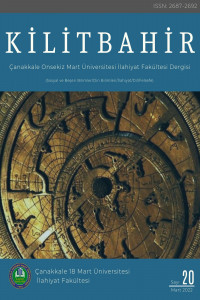Inspired Knowledge in Islamic Thought: Al-Ghazali’s Theory of Mystical Cognition and Its Avicennian Foundation. Culture and Civilization in the Middle East
Since the appearance of his polemical work, The Incoherence of the Philosophers (Tahâfut al-Falâsifah,) Abu Hamid Muhammad al-Ghazali (d. 1111) has stayed at the center of the debate regarding the fate of philosophy in Muslim societies. The reactions to his thought and writings have varied from one critic to another; while Abu al-Walid Ibn Rushd (d.1198) was defending ‘the first teacher’ of the Peripatetics, Aristotle, against al-Ghazali and blaming his conclusions as incoherent in his response to al-Ghazali, The Incoherence of the Incoherence (Tahâfut al-Tahâfut), another book of al-Ghazali, The Revival of the Religious Sciences (Ihyâ’ ‘Ulûm al-Dîn), was being burnt for its philosophical tendencies in the Muslim West. In addition to the alleged philosophical tendencies of the Revival, his Niche of Lights (Mishkât al-Anwâr), and especially the third chapter of the book,has raised some question marks regarding his stance toward philosophy.
Inspired Knowledge in Islamic Thought: Al-Ghazali’s Theory of Mystical Cognition and Its Avicennian Foundation. Culture and Civilization in the Middle East
Since the appearance of his polemical work, The Incoherence of the Philosophers (Tahâfut al-Falâsifah,) Abu Hamid Muhammad al-Ghazali (d. 1111) has stayed at the center of the debate regarding the fate of philosophy in Muslim societies. The reactions to his thought and writings have varied from one critic to another; while Abu al-Walid Ibn Rushd (d.1198) was defending ‘the first teacher’ of the Peripatetics, Aristotle, against al-Ghazali and blaming his conclusions as incoherent in his response to al-Ghazali, The Incoherence of the Incoherence (Tahâfut al-Tahâfut), another book of al-Ghazali, The Revival of the Religious Sciences (Ihyâ’ ‘Ulûm al-Dîn), was being burnt for its philosophical tendencies in the Muslim West. In addition to the alleged philosophical tendencies of the Revival, his Niche of Lights (Mishkât al-Anwâr), and especially the third chapter of the book,has raised some question marks regarding his stance toward philosophy.
- Yayın Aralığı: Yılda 2 Sayı
- Başlangıç: 2012
- Yayıncı: Çanakkale Onsekiz Mart Üniversitesi
